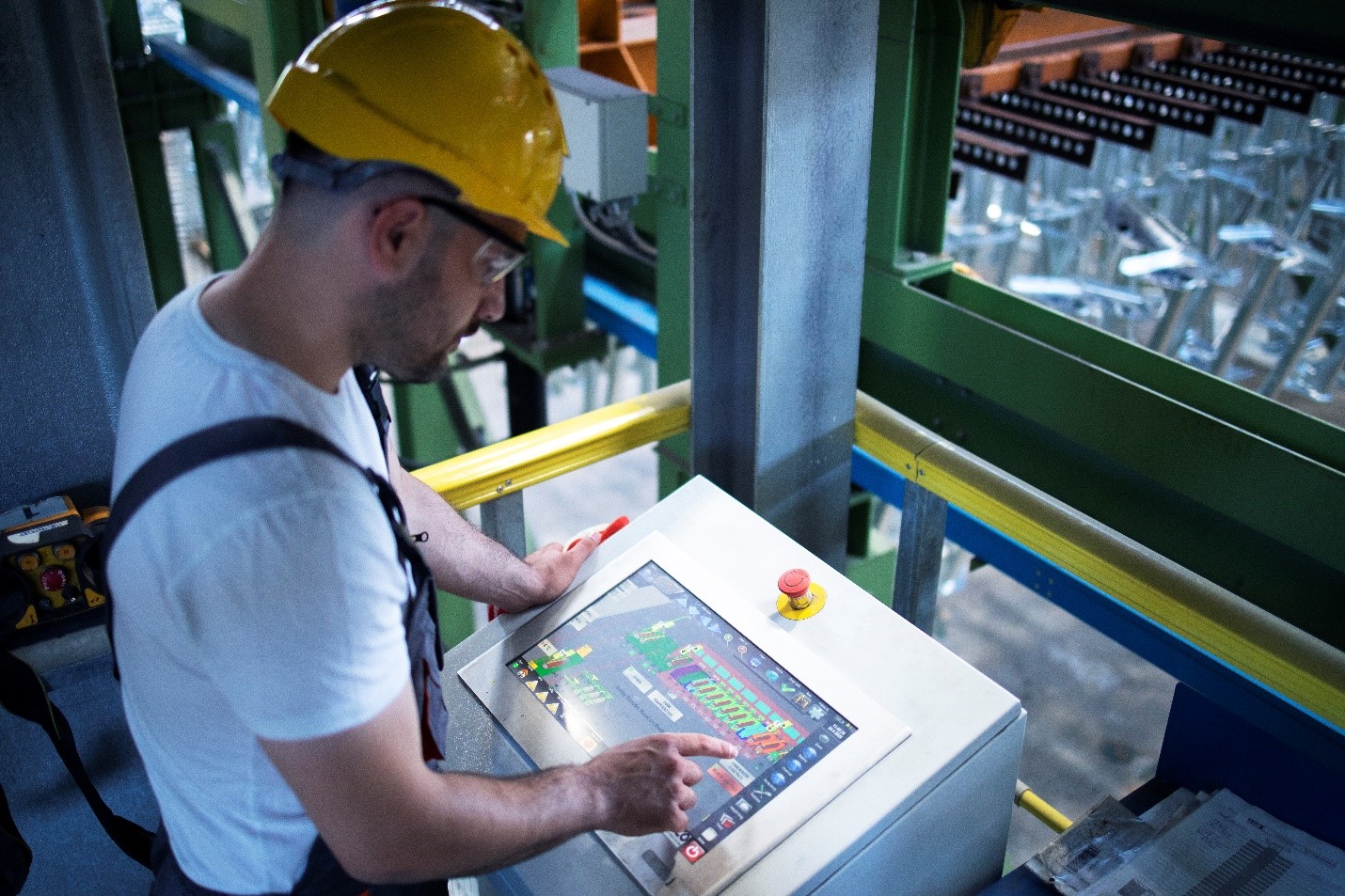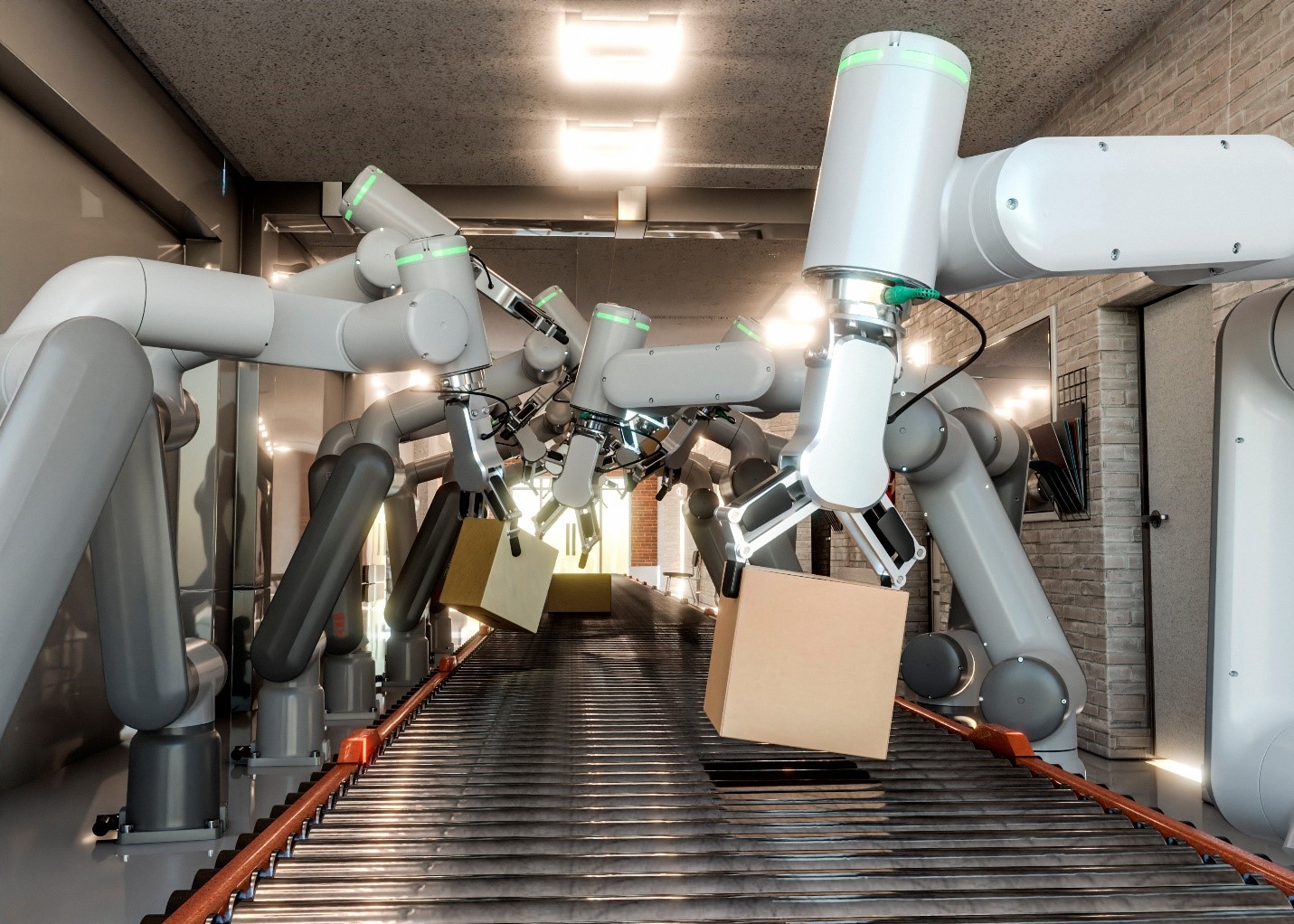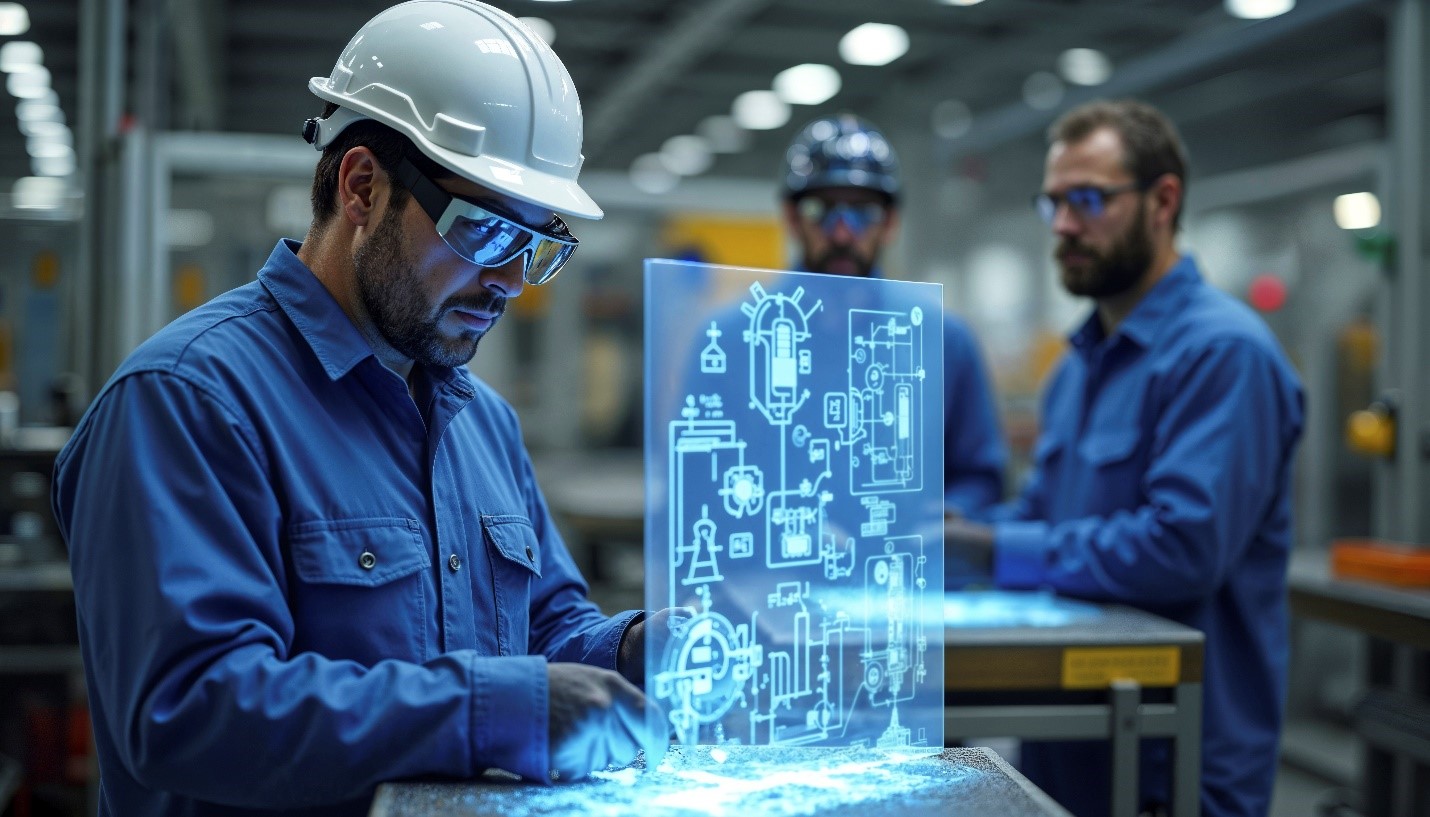Region
India
The existing industry landscape is undergoing a revolution with the advent of smart manufacturing. Digital transformation in the manufacturing industry has shifted towards more agile and innovative practices. Harnessing the power of Industry 4.0 and beyond is now a necessity to prioritise operational efficiency and quality. As estimated, about 90% of manufacturing leaders are adopting digital transformation, with global spending projected to reach $3.7 trillion by 2027.
The growth of Industrial IoT solutions has helped in improving design, manufacturing, and the rise of automation. The implementation of digital manufacturing transformation assists in numerous ways in the manufacturing industry. Integration of smart technologies like IoT, AI, analytics, and automation has improved overall efficiency and quality. Advanced digital technologies like sensors, analytics, and AI streamline production, predict failures, and enable real-time decisions, minimising bottlenecks and boosting productivity.
Artificial intelligence and machine learning
They step in as key drivers for digital transformation in the manufacturing industry. Here is how it’s changing the face of manufacturing:
-
- Predictive Maintenance – Use AI and ML to monitor equipment in real-time by detecting early failure signs and scheduling timely upkeep. Coupled with IoT sensors that track production and quality, this minimises downtime, enhances productivity, and ensures smooth operations.
-
- Quality Control – AI-powered systems help in identifying defects or imperfections in the manufactured products. These systems successfully detect the smallest of the irregularities, enabling immediate correction. As a result, it refines the overall quality of the products.
-
- Supply chain optimisation – Helps in end-to-end supply chain management. RFID tags, barcode scanners, advanced analytics platforms, etc., keep track of materials and offer advanced forecasting.

Automation
Automation is rapidly adopted across most of the manufacturing operations management. Effective implementation of robotic process automation (RPA) helps in automating repetitive tasks and performing work with high precision and speed. This not only enhances the overall quality but also speeds up the production volume. According to a report by McKinsey , automation has successfully reduced machine downtime by 30 – 50%, increased 10 – 30% throughput, and boosted 30% labour productivity.
IoT sensors
Industrial IoT solutions are bringing a new wave of smart manufacturing. Embedding IoT sensors in equipment or machinery collects important data such as temperature, vibration, speed, energy consumption, etc. Real-time data analysis gives a comprehensive overview of the performance. This helps with the immediate detection of issues like overheating, unusual downtime, etc. Also, the data logs give an overview of historical trends, ensuring effective process benchmarking.
Digital Twins
The manufacturing industry has transformed with advanced technology integration like digital twins, which represent a virtual replica of physical assets, processes, or entire factories. It simulates “what-if” scenarios using a digital twin that helps in optimising production schedules, workflows, and enables virtual prototyping. Digital manufacturing transformation with the help of digital twins reduces waste, creates prototypes, and simulates operations, enabling effective training.

Cloud computing for optimised connectivity
Adopting cloud-based manufacturing scales up operations as it offers on-demand access. Manufacturers can secure a large volume of data on the cloud and make it accessible across locations. Cloud computing helps manufacturers with better collaboration, quick deployment of new digital tools, and scaling production. Use of cloud platforms enables real-time data integration from IoT devices, equipment, and enterprise systems. Manufacturers scale computing resources to meet shifting workloads. Cloud solutions secure access to centralised data and focus on cross-site collaboration.
Generative designs and Augmented Reality
Digital transformation in the manufacturing industry is backed by generative design created by AI that helps in the creation of optimised product designs. Using the power of generative design technology has helped manufacturers create efficient designs. It reduces material waste, maintains product durability, and functionality. It optimises design alternatives and makes use of materials that lower environmental impact. Increasing use of AR (augmented reality) is effective for training and maintenance, which assists in complex maintenance tasks. AR also offers real-time support as it helps with remote assistance from experts and guides technicians through a simulated environment.
Importance of digital transformation in manufacturing
For modern manufacturing and to get the best results, it is crucial to use advanced tools and trends for digital transformation.
-
- Amplify productivity – Integrated advanced technology that automates tasks, optimises workflows, and allows manufacturers to monitor in real-time. Ensures effective resource management and reduces downtime.
-
- Enhance quality – As advanced tools offer superior precision and immediate quality checks, they help identify irregularities and defects to maintain high standards.
-
- Supply chain optimisation –Digital transformation works solidifies the supply chain by providing detailed insights on inventory level, reducing storage, and improving supplier performance.
-
- Adapt to market changes – With a boom in smart manufacturing, it helps the industries to adapt to the ongoing market demands. Whether it is data-driven adjustments or designing customised products, it fosters innovation.
-
- Drive better collaboration – Adopting cloud-based manufacturing provides a centralised space to access information, store data, and streamline all team members globally with effective collaboration.
-
- Data-backed decision – With access to real-time data and insights, advanced tools and technologies help manufacturers make informed decisions. It also helps in analysing data-driven trends and hence addresses numerous operational challenges.
-
- Sustainable practices – Digital transformation is a way forward for manufacturers to follow sustainable practices. Integrating real-time monitoring tools effectively tracks resource usage, reduces waste, and lowers the environmental footprint.
Driven by Industry 4.0 technologies, the manufacturing industry is undergoing a profound shift in digital transformation. Manufacturers on a global scale are adopting innovative tools and technologies, enabling real-time monitoring, predictive maintenance, and fostering better collaboration to bring operational wins and process optimisation. Continued investment in technology remains essential and a non-negotiable way to successfully incorporate smart manufacturing practices.
Connect with Redington to know more about the latest updates and integration of digital transformation in manufacturing.











